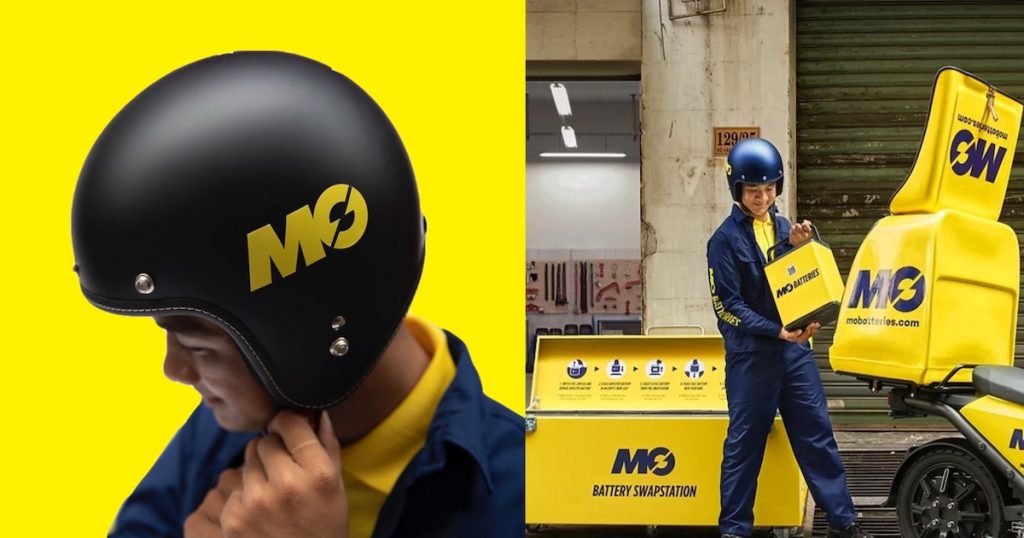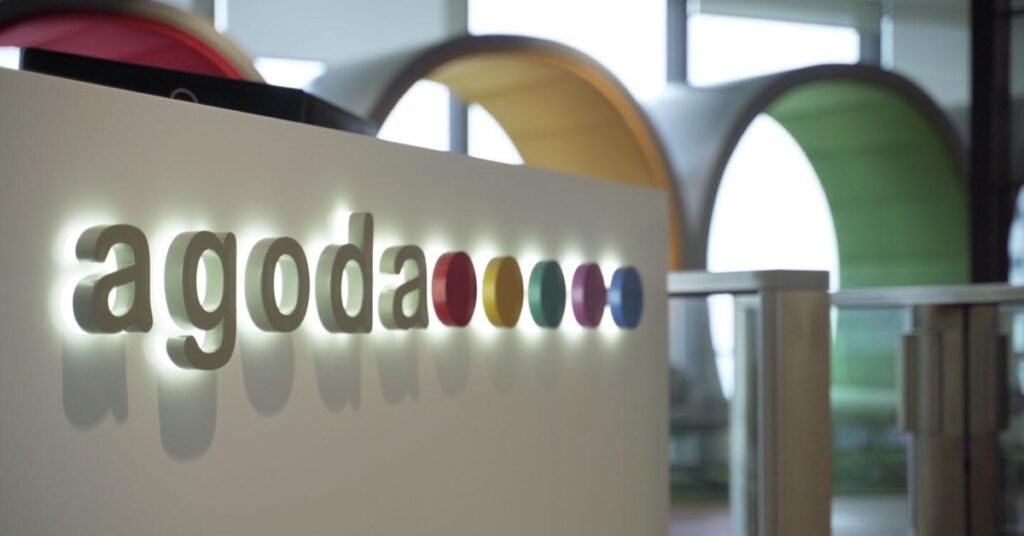Back when Olivier van Hardenbroek and Thomas Streitberg were pursuing their executive MBA at INSEAD in Singapore, they cooked up the idea for MO Batteries, which is a company that offers electric motorbike fleet charging solutions across Southeast Asia (SEA).
Olivier is a banker by background, with extensive experience in operations management and business development, while Tom started his career as a lawyer. He later delved into the banking industry too as an investment banker, before switching to be an entrepreneur and angel investor.
They later spoke to Paul Booij and Greg Willis about the business idea, who eventually also came onboard as fellow co-founders of MO Batteries.
Unlike Olivier and Tom, both of them have had some form of experience in the electric vehicle (EV) sector. Greg had spent the bulk of his career in the motorbike industry — he was most recently the managing director of Harley Davidson in Japan, and was responsible for the launch of Harley Davidson’s Livewire electric motorbike in SEA.
Meanwhile, Paul is a scientist and inventor who specialises in complex optimisation challenges. Amongst his most recent projects, he worked with the Singapore government on the electrification of the public bus network and holds three patents.
Addressing climate change with EVs
“MO was founded on a desire to find quick, practical ways [to] reduce carbon emissions [and] address climate change. Shifting from petrol vehicles to EVs ticks these boxes,” said Thomas.
“So we started to look at the EV landscape and very quickly came to realise that most EV solutions were based around private cars with secure access, and to a reliable electricity supply. Essentially, this is the Tesla model and it’s designed for the USA — but this is not how transport works in most of SEA.”

Around 80 per cent of households in SEA rely on a motorbike as part of their transport needs. This adds up to around 230 million motorbikes plying the roads in the region, cited Thomas.
In spite of this staggering number, they found that no one was really thinking about how all these motorbikes could go electric. This prompted them to find ways to quickly, simply, and cost-effectively transition petrol-driven motorbikes to electric motorbikes across SEA.
Instead of manufacturing EVs or batteries, MO Batteries work with corporate customers to identify the best electric motorbike on the market for their fleet needs. With its proprietary software, they then design, build, and manage the fleet’s charging operations in a fully optimised way.
By fully optimised, we mean a design using the minimum number of motorbikes, the least amount of charging infrastructure, and the smallest amount of electricity to meet the fleet’s demands. By reducing all of the elements in the fleet, we reduce the overall cost of acquiring and running the fleet.
So the client receives a zero-emissions EV motorbike fleet at a similar or lower price than their existing petrol fleet. By providing a single, comprehensive, cost-effective solution to the challenge of transitioning to EVs, we make it easy for corporate fleet operators to go green.
– Thomas Streitberg, co-founder of MO Batteries
Battery swapping for electric motorcycles
However, the biggest gripes that people have when it comes to adopting EVs are costs and range anxiety.
“People are put off by the higher upfront costs of EVs and are concerned about the risk of getting caught out with a flat battery,” said Thomas, adding that MO is specifically designed to address both of these issues.
Its fully-optimised fleet solution helps to reduce the cost of operating an EV fleet so that it is on par or lesser than a petrol-driven fleet.
Additionally, its software manages the fleet to ensure that there is always a charged battery available when needed. This is where its battery swapping service also comes into play to help address range anxiety.

MO charges batteries at a centralised charging facility and then delivers them to the client, where they are stored in a swap station. The client’s drivers then swap the charged batteries for their discharged batteries whenever they need them.
MO collects the discharged batteries and brings them back to the charging facility, and the cycle begins again.
– Thomas Streitberg, co-founder of MO Batteries
Their fee structure is also simple. They charge a fixed fee per month per electric motorbike, which lets customers get access to the electric motorbike, batteries, and their management software.
“This is attractive because it means the client doesn’t have to pay to purchase an electric motorbike or battery, or pay to install and operate any charging equipment on their premises,” said Thomas.
Furthermore, the key value of battery swapping is there is no downtime or charging. By swapping your discharged battery with a fully-charged one, you don’t have to wait around while the battery charges.
Some of their local clients include Singpost, DHL, Ninja Van and Prosegur. In October, MO Batteries also signed an agreement to expand with Grab, in which they will conduct a four month-trial of electric motorbikes using MO’s system in Singapore.
Particularly, Grab’s delivery-partners will deliver food using electric motorbikes and battery swapping supplied by MO. The trial with Grab is expected to commence in the first quarter of 2023.
MO Batteries was awarded the sandbox pilot from LTA
MO Batteries were on the cusp of launching when COVID-19 hit, but their plans came to a standstill for two years due to the pandemic.
“In some ways, this was a blessing in disguise as it gave us the opportunity to really develop our tech stack so that our offering on the ground now is much stronger,” said Thomas.
As a testament, MO Batteries was awarded the sandbox pilot to trial EV battery swapping for motorcycles from the Land Transport Authority in September. This makes them one of only two companies with approval to provide battery swapping services in Singapore.
Thomas sees this as a significant milestone for the company, as it serves as a strong recognition of their safety and operational strength.

Singapore is their second market after Vietnam, and the company has plans to expand to Malaysia in early 2023.
Singapore is where we develop our tech. Even though it’s a small market, it’s very important for us as a place to do our cutting-edge development work. In contrast, Vietnam is the biggest motorbike market in SEA after Indonesia, and probably the most advanced in terms of adoption of EVs.
Our aim is to grow fast, so we need to go where the vehicles are. Malaysia is a halfway house between these two extremes. It’s a much bigger market than Singapore, which gives us the chance to scale up new ideas before they go into the giant Vietnamese market.
– Thomas Streitberg, co-founder of MO Batteries
Outside of their core markets, MO Batteries’ expansion is based on a “follow-the-client model”. They work with multi-national companies and following a successful deployment in one country, these companies will ask them to roll out the solution in the other countries that they operate in.
“We just want to make it easy to go electric,” quipped Thomas. “In practical terms, our plan across the next three to five years is to be operating across SEA with tens of thousands of vehicles under our direct management and our software and charging solutions embedded in hundreds of thousands, if not millions, of electric vehicles.”
The fact that the government will be passing new legislation next year to regulate EV charging will be an added boost to the entire EV ecosystem in Singapore, and create massive changes for the legacy vehicle industry.
“Fuel retailers will need to adapt [and] maintenance and service providers will need to upskill. The challenge of of building the charging infrastructure is huge, [so] the electricity grid will need to be strengthened to meet much greater demand for power. There are all sorts of opportunities to be part of a truly booming industry,” he summed up.
Featured Image Credit: MO Batteries
Also Read: One card to rule them all: This S’pore startup is unifying the payment process for EV charging










